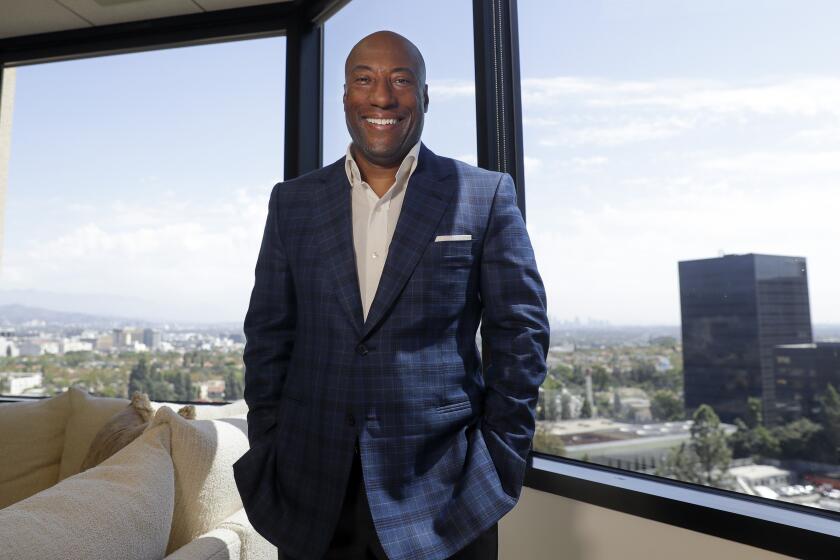Iacocca Still Must Pass the Test of Time
- Share via
We have a tendency in this country to idolize success, often without looking too hard at how it was achieved. The problem with this in business is that it often distorts our judgment about how durable the accomplishments will turn out to be.
Past idols have included individuals such as James Ling, one of the most publicized conglomerateurs of his time, who built Ling-Temco-Vought in the 1960s only to see it run into big trouble in the 1970s.
There was Bart Lytton, whose name stood among the most famous in the savings and loan industry in the 1960s until his edifice crumbled under the weight of too-rapid expansion. There have been a number of big-name money managers who built red-hot mutual funds, and while many of them are still around, they are a chastened lot.
It is discouraging. We want to believe in success because we want to have dreams of our own. And so it is that we have a new idol, one we have reason to hope will be worthy of such reverence. His name is Lee A. Iacocca.
In eight years, which is just a few minutes in business history, he has turned a foundering Chrysler into a viable competitor, making mountains of money for himself and, in a number of ways, for all of us.
It is the success story of our time, making Iacocca a hero, even a sex symbol. Are we once again being premature? Well, it is worth looking at the record.
One thing for sure, Iacocca didn’t do it alone. He had the very substantial help of the American taxpayer. We handed a bankrupt company a line of credit amounting to $1.5 billion. More than that, we used our influence to persuade the union that Iacocca deals with to give up some hard-won compensation for its members.
Protective Barrier
We went even further and put a protective barrier around Iacocca’s entire industry so that car producers in other nations couldn’t overwhelm the likes of Chrysler. We let Iacocca persuade us that if we did all of this, he could bring Chrysler back, get us off the hook for the loans, save jobs and keep the auto industry more competitive than it would have been with Chrysler gone. And so far he has been right.
He hasn’t stopped there. Realizing that we didn’t save Chrysler to keep it around for just a few years, he is now enfolding American Motors into his company. AMC is hardly a tower of strength, but it brings what a third-place company needs against dominant competitors such as Ford and General Motors--more market share, the special niche provided by Jeep and hence more resiliency in bad times.
That, of course, is the biggest remaining question about the Iacocca cult of personality. Chrysler has done well behind the protective barrier and with auto sales booming. Tougher days lie ahead.
Worldwide capacity in the auto industry is getting far out of line with projected demand. In addition, some day Chrysler will have to face an economic recession, which has been the undoing of smaller car companies in the past.
Iacocca, above all else, is a salesman. His enthusiasm is infectious, but as with many super-salespeople, it can get in the way of judgment. Iacocca has suffered from such problems on a couple of occasions.
While he stood to make millions on stock options that he took in place of salary in Chrysler’s darkest days, he tried ungratefully to get taxpayers to give up one of the sweeteners they received to give his company credit--warrants to purchase Chrysler stock, a deal that ultimately netted the U.S. Treasury more than $300 million.
He also launched an all-out attack on GM’s plan to operate a factory in California with Toyota, a move that saved thousands of American jobs without taxpayers having to guarantee any loans. When he failed to stop GM, Iacocca set about making new deals with foreign producers himself.
That’s hardly enough to condemn him, just enough for a little perspective. Iacocca has a real shot at business immortality if he produces a company that is as viable eight years from now as it is today.
The job ahead, however, will involve tougher decisions on products and marketing strategies than those he has had to make to date. It is going to take a lot more than acquiring another company; it is going to take a lot of risk-taking without taxpayer support.
More to Read
The biggest entertainment stories
Get our big stories about Hollywood, film, television, music, arts, culture and more right in your inbox as soon as they publish.
You may occasionally receive promotional content from the Los Angeles Times.










